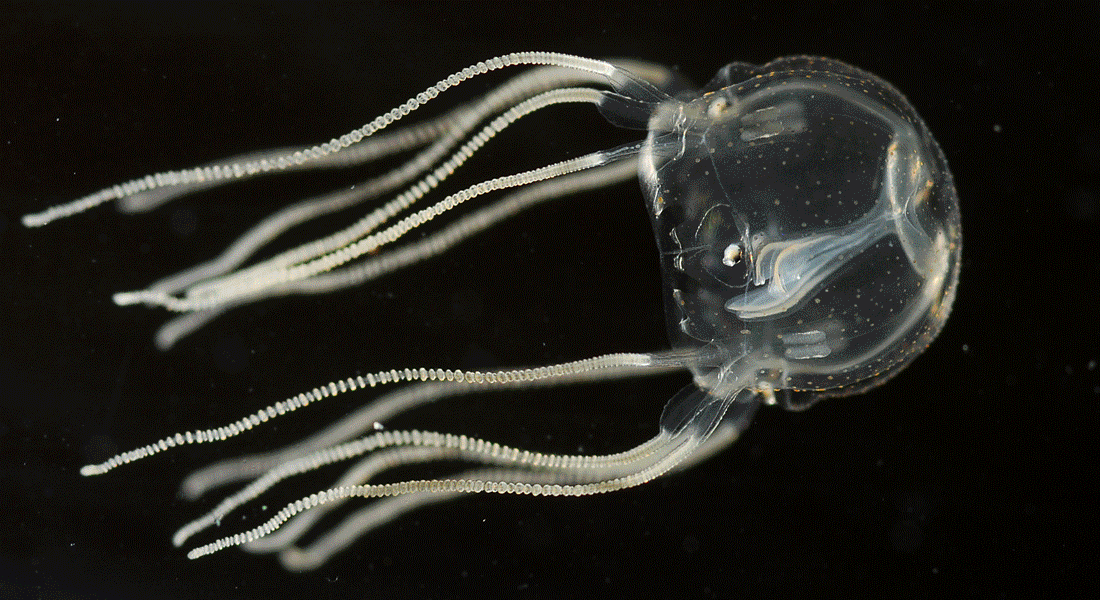Section for Cell and Neurobiology

Research into genomics, neurobiology, neuroendocrinology, metabolism, and physiology is the main focus at CNB. The section is home to four research groups investigating biological problems within these fields, ranging from basic research to the molecular basis of human diseases in collaboration with industrial partners.
The section has a very strong research and study environment, using the most advanced technologies for research and education in molecular and cell biology, biochemistry, genetics and neurobiology.
For this we use established lab models, primarily the fruit fly Drosophila, along with other emerging invertebrate models, including the beetle Tribolium and cnidarians.
The fruit fly is an excellent genetic model organism for basic and biomedical research, enabling several important discoveries resulting in a number of Nobel prizes; the beetle is used as a model to study physiology, and other species give additional evolutionary insights into our understanding of intercellular signaling.
Endocrinology and Metabolism Lab
Kim Rewitz
 Internal organs of animals serve tissue-specific functions and continuously exchange information through a network of hormonal signals. Organ-to-organ signaling networks coordinate whole-organism physiology and thus maintain body-wide homeostasis. Communication between organs is mediated by a variety of long-distance signals, such as cytokines and hormones, that are secreted from different organs and carried in the circulatory system to receptive target tissues, where they regulate metabolism and physiology.
Internal organs of animals serve tissue-specific functions and continuously exchange information through a network of hormonal signals. Organ-to-organ signaling networks coordinate whole-organism physiology and thus maintain body-wide homeostasis. Communication between organs is mediated by a variety of long-distance signals, such as cytokines and hormones, that are secreted from different organs and carried in the circulatory system to receptive target tissues, where they regulate metabolism and physiology.
Neurobiology Research Group
Frank Hauser
 We investigate G protein-coupled receptors (GPCRs) and their natural ligands, such as neuropeptides, protein hormones, and biogenic amines in a variety of invertebrates: The fruitfly Drosophila melanogaster, the beetle Tribolium castaneum, honey bees, bumble bees, parasitic wasps, ticks, mollusks, cnidarians.
We investigate G protein-coupled receptors (GPCRs) and their natural ligands, such as neuropeptides, protein hormones, and biogenic amines in a variety of invertebrates: The fruitfly Drosophila melanogaster, the beetle Tribolium castaneum, honey bees, bumble bees, parasitic wasps, ticks, mollusks, cnidarians.
Neuroendocrinology and Physiology Lab
Kenneth Veland Halberg
 Our overall research focus is to understand the mechanisms by which long range signaling molecules, e.g. neuropeptides and peptide hormones, act as systemic mediators of intercellular communication to direct critical actions in development, metabolism, reproduction and physiology.
Our overall research focus is to understand the mechanisms by which long range signaling molecules, e.g. neuropeptides and peptide hormones, act as systemic mediators of intercellular communication to direct critical actions in development, metabolism, reproduction and physiology.
Organ Homeostasis & Physiology Lab
Ditte Andersen & Julien Colombani
 Multicellular organisms have evolved organs and tissues with highly specialized tasks. The function of each organ is modified by local clues and systemic signals derived from other organs to ensure a coordinated response accommodating the physiological needs of the organism.The intestine, which represents one of the largest interfaces with the external environment, plays a key role in relaying environmental inputs to other organs to produce systemic responses. Our team is interested in identifying the intra- and inter-organ couplings contributing to intestinal stem cells biology, gut homeostasis, organism physiology and disease.
Multicellular organisms have evolved organs and tissues with highly specialized tasks. The function of each organ is modified by local clues and systemic signals derived from other organs to ensure a coordinated response accommodating the physiological needs of the organism.The intestine, which represents one of the largest interfaces with the external environment, plays a key role in relaying environmental inputs to other organs to produce systemic responses. Our team is interested in identifying the intra- and inter-organ couplings contributing to intestinal stem cells biology, gut homeostasis, organism physiology and disease.
Contact
Section for Cell and Neurobiology
Universitetsparken 15
DK-2100 Copenhagen Ø, Denmark
SECTION HEAD
Professor Kim Rewitz
Email: kim.rewitz@bio.ku.dk
Phone: +45 3533 0155
Mobile: +45 6165 6026
